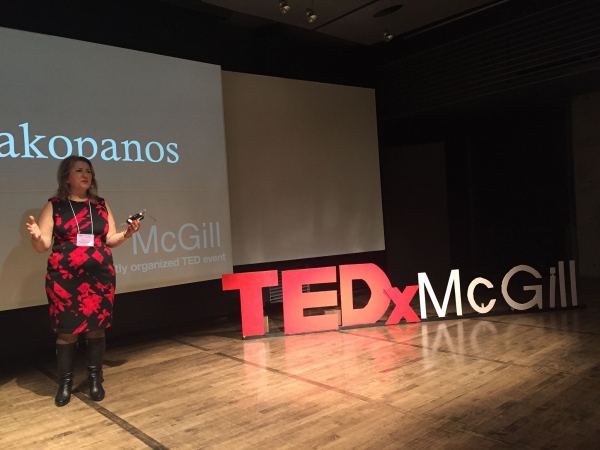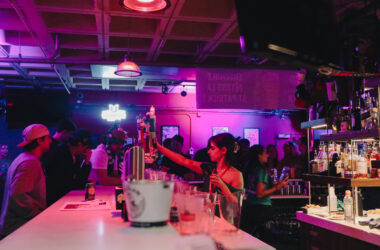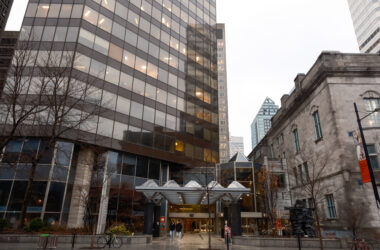On Nov. 24, TEDx McGill hosted a conference entitled Climbing Ladders, which featured 10 presentations and performances by scholars, journalists, and students.
Emilie Nicolas
Emilie Nicolas, a board member of the socially progressive Broadbent Institute think tank and co-founder of Quebéc inclusif, a non-profit organization that advocates for inclusivity for minorities in Quebec, disputed the myth that racism rarely occurs in Canada. Nicolas recalled how members of her predominantly-white neighbourhood showed prejudice against her and discussed how black women are misrepresented in media.
“The moment I started school, I started hearing the n-word on the schoolyard,” Nicolas said. “By the time I was a teenager, I straightened my hair. I thought that, perhaps, if my hair was natural, it would make people laugh and stare.”
Nicolas argued that Canada’s history of discriminatory policies is not sufficiently represented in school curricula. According to her, the false belief that everyone has equal opportunities hurts marginalized children by making them feel inadequate.
Charles Mann
Science journalist Charles C. Mann explained how the global population reaching 10 billion people might influence humanity’s survival. He separated the common concerns over the future of our species into two categories: ‘Wizards’ and ‘prophets.’ While wizards emphasize the promise of technology in ensuring access to necessary resources, prophets regard changing global habits as the best solution to climate change.
“Wizards and prophets have been butting their heads together for decades, but they believe that technology is key to a successful future,” Mann said. “The trouble is [that] they envision different types of technology and different types of futures.”
Though he admits that this is a simplification of a complex debate, Mann described cooperation between both camps as fundamental.
“One [solution] might be [that] each side agrees to accept the fundamental premises of the other,” Mann said. “Wizards and prophets working together have many paths to success. And success would mean much more than mere survival, important though that is.”
Oren Hodes
McGill student Oren Hodes delivered his talk on the importance of mental resilience—the ability to bounce back from difficult experiences. After returning from his semester abroad in Barcelona, Hodes was faced with a series of demanding circumstances that took a toll on his mental well-being.
“I was riding a high, […] but the second I stepped back in Montreal, everything started to crash down on me,” Hodes said. “My father was diagnosed with cancer; his father—my grandfather—found a tumour in his body; and, I was asked to step in to my parents’ divorce as power of attorney.”
Hodes gave the audience advice that helped him through his difficulties: Finding a creative outlet, maintaining one’s mental health, and working toward personal goals.
“These three things are something that can be done everyday,” Hodes said. “And I genuinely believe that every person in this room can achieve their wildest dreams.”
Susanna Zaraysky
Susanna Zaraysky, author of Language is Music and One-eyed Princess, spoke to her audience about being born with strabismus, a disorder causing misalignment of the eyes. At the age of 29, she read an article by British neurologist Dr. Oliver Sacks explaining that those with her visual disability are ‘stereo-blind’; unable to see with both eyes at the same time and, thus, have no depth perception.
“There’s this phrase [that] ignorance is bliss” Zaraysky said. “When it comes to your health, medial ignorance is not bliss. I was absolutely devastated. How could I have lived this long without knowing I was partially blind?”
With corrective lenses and vision therapy, Zaraysky was able to train her eyes to work together and her brain to process vision from both eyes. In her presentation, she urged medical schools to further educate physicians about visual disabilities to avoid misdiagnosis in children.









